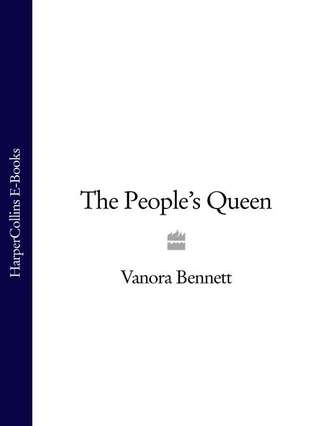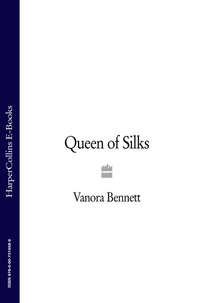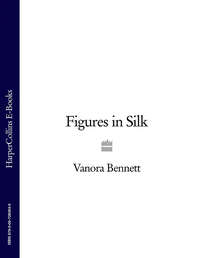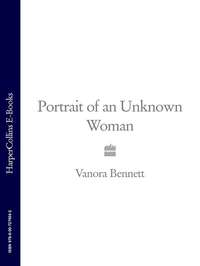
Полная версия
The People’s Queen
‘Whatever kindness the worshipful Mayor is doing, it’s to impress you, I’m sure, not me,’ he replied gratefully. It’s her kind of favour, he understands. He’s heard a lot of stories about Alice Perrers’ ruthless ways with property, exchanging influence and access to the King for favours in land and buildings, constantly obtaining new leases on still more properties, all on the never-never, feathering her own nest. The stories aren’t flattering, but they’re probably all true. It’s obvious she’s minting money. Everyone says the same thing. Chaucer knows he’s supposed to be shocked by her greed. Philippa, in particular, keeps telling him so. But he can’t help admiring the merry mischief in Alice Perrers’ eyes. He likes her for enjoying her tricks and subterfuges so much.
Philippa will have made those empty spaces above Aldgate beautiful in these past days. She’ll have hung the tapestries and scattered the cushions artfully to fill the rooms with loveliness and colour. There’ll be flowers. All their little wealth will be on brave display. She’ll understand the importance of that.
Geoffrey Chaucer finds his hands clutching at his long sleeves. He’s wearing merchant robes today, long sweeping things to his feet; he plans to dress like the merchants he’ll be living among. But he hasn’t reckoned with the heat inside the tube of velvet. He’s forgotten that, in his years of aristocratic tunics and hosen. He’s stifling. His linen undershirt is soaking. He wishes his stomach would stop churning.
If only he could be sure his wife also understands how important it is to treat these merchants like princes, and feed them like kings. If only he knew for certain that she’s understood about the dinner.
FOUR
There’s a crowd at Aldgate as the merchant procession arrives. Two donkeys, pulling a heavily laden cart, are blocking the traffic while men unload trays from it. They’re ignoring other men, who are darting in and out of the gatehouse, complaining, as well as the men on carts trying to come into the City, who are shouting and cat-calling and hooting obscenities in their rustic Essex voices from beyond the gate.
Chaucer winces. He remembers these stubborn City scraps for space so well. It might go on for hours, this slow-motion shouting. It might turn into a fight. He doesn’t want his dignitaries to be caught up in one of these spats now.
But, after a heart-stopping moment, he realises there’s no cause for concern. The aldermen are City folk too. They know, better than he, that there’s no need to mix themselves up in this competition among low-lifes. They just puff out their padded chests and glide through the fracas as if unaware of it, making straight for Chaucer’s staircase. They don’t even seem to see the shaking fists and jutting jaws all around them.
‘Warm for the time of year,’ Will Walworth opines, velvet-smooth, taking Chaucer’s arm and guiding him into the doorway. Only the glint of amusement in his eyes gives away his awareness of the little birds fighting.
It’s only when Chaucer is on the narrow stone steps, aware that Walworth has politely taken the narrower side of the spiral yet is so delicate on his long feet that he seems to be flying up the tiny treads, that the new comptroller sees that some of the men with trays are also in the stairwell, both above and below him, and that each of them is carrying a platter on his shoulder.
When Chaucer reaches the top of the stairs, and emerges into the biggest of the stone chambers, he sees, to his unspeakable relief, that it is all decked out with trestles and cushions and benches and the cupboard containing his and Philippa’s many silver-gilt Christmas gifts from Countess Elizabeth, his first employer, and both the past and present Duchesses of Lancaster, Philippa’s two employers, and Duke John too, and the King himself, each cup bearing one or other noble coat of arms. He sees, too, that the damp back wall is covered by the tapestry his mother worked, a hunting scene she deemed appropriate for his new gentlemanly station in life, and there are nosegays of sweet purple roses and clove-scented pink gillyflowers in small vases everywhere. Only then does he begin to understand what’s going on with the food and the platters.
Philippa, in a neat blue robe that she must have considered quite showy enough for City folk, is here, sure enough, with one eyebrow very slightly raised, her gaze passing over Chaucer as she steps forward, with her usual willowy formality, to bow to and welcome the future Mayor to her new home.
But behind her, supervising the men arriving in the room with their trays and platters – on which he can now see, as their coverings are removed, are cooked fishes of every description, and piles of cut oranges and pomegranates and lemons, dates and dried apricots, crumbles and jumbles, pink creamy castles of blancmange and wobbling rivers of posset, and a sugared pastry extravagance in the shape of a swan, until the table resembles nothing so much as the Land of Cockaigne – is another, less familiar, female form.
‘Over there,’ he hears, as if in a dream. ‘And this one, here, in the corner. There’s a little bit of space here still.’ She has her back to him, but there’s something about that strangely confident voice, and about that tan robe. Before the woman has finished and turned round, allowing Chaucer properly to admire the elaborate cauls in which her hair has been arranged over each ear, and the sheer veil sparkling with fine gold threads wafting around her face, he’s guessed.
‘Madame Perrers,’ he mumbles, stepping forward. Then, correcting himself from courtly French to practical English, the language of the City: ‘Mistress Perrers.’
She turns to him. ‘Chaucer!’ she says familiarly, as if he were her servant. No ‘Monsieur’ here; no ‘Master’ either. But who’s he to argue with that, when she’s saving the day, acting as though she’s his servant, bringing in food? And she looks so pleased to see him, surrounded by bowing merchants, too. She’s smiling, very warm and wide; for a moment, he thinks he sees her wink.
Now he understands Philippa’s raised eyebrow. He can see from the colours of the platters – Alice’s all of pewter, Philippa’s of a jumble of different colours of pottery and metal – that the meal his wife has laid on has been, until Alice got here with these unsolicited reinforcements, a modest affair of herring, sorrel, and strawberries. The relief that surges through Chaucer’s innards when he sees the feast now being set out by Alice’s servants is like a river flooding its banks. He’s intensely aware of the appreciative looks on the merchants’ faces, the bright, hungry eyes, inspecting the dishes with pleasurable anticipation. He can almost feel the saliva swirling in every mouth. Everything will be all right now. Except, of course, that behind her cool politeness, Philippa must be fuming at That Woman having so unexpectedly upstaged her.
Hastily, realising Philippa is watching him, as if for signs he’s conspired in the Perrers dinner coup, he bows to his uninvited guest, very formally. ‘Why, I had no idea…’ he begins cautiously, so Philippa will understand his innocence. ‘I thought the court would be packing up today, for Sheen…if I’d realised you might be lingering in London, Mistress Perrers, of course, I would have invited…’ But then he looks up into Alice Perrers’ bold eyes, and sees the ghost of a wink in them, and forgets all his furtive married-man’s cunning, and is lost. She’s so straightforward in her mischievous do-gooding – understanding everything, saying nothing, and tremendously pleased with herself at having saved the day, all at once – that he abandons caution, takes her hands in his, bobs his head down in a sketchy bow, and says, with all the real happiness and merriment that the sight of this very welcome guest suddenly inspires in him, ‘Well, what a wonderful surprise!’
‘My modest housewarming gift,’ Alice Perrers replies nonchalantly, squeezing his hands, bowing in her turn to Philippa to include her in this circle of warm astonishment, but not batting an eyelid when Philippa’s face continues to express nothing more than the minimum of polite gratitude that etiquette demands. ‘To you both,’ Alice Perrers says, and, to an encouraging rumble of assent from the merchants, ‘to wish you health, wealth, and happiness in London.’ Then, not trying any further with Philippa, she turns to Walworth, Brembre, and Philpot, and finally to Latimer and Stury (who, Chaucer notices, have struck up a conversation with the flashing-eyed Fleming, Richard Lyons), and greets each group of them in turn with a warm look and a quiet, amusing, private word.
Chaucer notices Alice’s poise here, among the merchants, just as he’s been noticing her confidence at Westminster ever since she started taking him to meet the officials she clearly knows so well. Chaucer doesn’t think she’s the child of a London merchant family, because, if she were, surely he’d have known her as a boy? Still, she seems quite at home here – more so than at court. He thinks, vaguely: Haven’t I heard something…wasn’t she married to a merchant, right back at the start? (Perhaps, if she was, the marriage was during his years away, trotting around France and Flanders and Italy…) He can’t think who the husband can have been, though. He should find out.
Chaucer knows, anyway, that he’ll never feel sorry for her in this company – she’s too at ease, and too popular. Look at her charming the merchants. Everyone laughs when she whispers in their ear, and it’s genuine laughter every time. And they’re not usually like this with women, either; they’re too sober, and not given to flirting. They must take her seriously. They must be talking about trade; that’s what they do talk about. They’re treating her like one of themselves.
He’s almost laughing himself with the miracle of what she’s done for him. They’ve always said Alice Perrers can organise anything. But it can’t have been four hours since he saw her on the jetty, back at Westminster. How in the name of God has she found the time to do her hair like that, and rustle up all these splendid dishes, so far away on the other side of town, and get herself here, all in a morning? He’s heard she has a London house in Vintry Ward, like Stury, a proper liveable-in house, as well as all those other London property holdings that people talk about. She must have sent word straight away for her servants there to get to work, then come up to London herself within the hour. But still. He’s shaking his head and beaming all over his face, as Philippa seats the party around the table. He can’t believe his luck.
Somewhere deep inside, below the grateful hilarity and relief, he can feel just a hint of smugness surfacing too at his own good judgement. If all this is his reward, he thinks, just for stepping in politely to save embarrassment when Princess Joan decided to start throwing goblets of wine around at a ball, he’d better make a resolution to be just as brave every day of the week.
‘Can I pass you this dish of sorrel?’ Chaucer sees Philippa try with William Walworth at her left, and is grateful to his wife for that good intention, at least. She’s sat beside him for twenty minutes without making much effort at conversation, though she’s never done anything so obvious as to yawn, or look away. She’s just smiled. Walworth appreciates that she’s trying, too. He very daintily takes a leaf or two on the end of his knife. His appetite is sated, but politesse oblige. He takes a token nibble.
‘Have you settled in happily, Mistress Chaucer?’ he enquires, beaming virtue at her out of his pale eyes, like a lean, kindly priest. ‘Is there anything we can help you with, now you’re here? I know my wife would be more than ready…’ He pauses, full of the will to please, assessing what goods or services Mistress Chaucer might possibly need, or desire. But Philippa’s already shaking her head. Flirtatiously, though not very; but definitely.
‘Oh,’ she says. Her voice is a little too perfunctory for her polite words to sound sincere. ‘You’re too kind, Master Walworth. I’m honoured. But I think everything’s sorted out, for now…though perhaps when I’m next in London I could call on Mistress Walworth…’ Her voice trails off.
‘Ah yes,’ Walworth says, not allowing himself to sound disconcerted at the reminder that Mistress Chaucer won’t be a regular part of London social life. ‘Of course. You’re keeping your place as demoiselle to’ – and here he can’t, for all his good manners, refrain from slightly wrinkling his face – ‘my lady the Duchess of Lancaster.’
Walworth is a merchant, so how can he say the name of Lancaster without a bit of a scowl? Because, if there’s no love lost between the London rich and my lord the Duke of Lancaster, the merchants know exactly whom they blame. It’s the Duke’s fault, in their book. The Duke is so jealous of his father’s dependence on the rich men of London for loans to finance the war that he insults the merchants, whenever he sees them at court, by telling them to their faces they’re not worthy to be there. It was never like this before, he’s been heard to say; in the old days, you’d never have seen noblemen kowtowing to the servile classes. The Duke’s jealousy of the merchants’ influence leads him further still – he also talks openly about wanting to take away the freedoms that the City people enjoy: the right to elect their own leaders and try their own people in their own courts. So naturally the merchants dislike and fear the Duke, in case he destroys London’s independence; and naturally any mention of the Duke’s wife will cause a certain amount of suppressed upset in Master Walworth’s mind. He nods a few more times, bringing a wistful smile back on to his face. ‘At least, so I understand,’ he adds, with a slightly questioning note in his voice. Philippa Chaucer smiles back, but she’s blank-eyed. She’s making no further effort at conversation.
Chaucer feels so awkward at his wife’s less than enthusiastic treatment of London’s greatest merchant that he leans forward himself. ‘May I, Master Walworth,’ he says hastily, ‘draw your attention to the hanap you’re drinking from? A very gracious gift to my dear wife from my lord the King himself, for her years of service to his family?’ He feels it’s important to remind Master Walworth that this awkward independence of spirit that his wife’s showing does, at least, bring connections with the greatest in the land. ‘I’ve always admired the beauty of that tracery on the silver-gilt, look…’ He draws a finger up the chased foliage twining around the stem of the goblet.
Walworth, who no less than Chaucer is a master of smoothing out difficulties in relations, looks as handsomely appreciative as he’s supposed to, and clucks warm, admiring praise. It is very fine work.
‘Mistress Chaucer’, Chaucer says, with more warmth than he feels, ‘is greatly loved by the royal family. My lady of Lancaster won’t think of letting her go…’ He raises rueful hands to the sky, and shakes his head, making a comedy of Philippa’s distance from this new life in London. ‘To my great sorrow, of course. I will miss her, and our children; who more?’
Both the men have found a way out of the moment of awkwardness by now. They’re leaning towards each other, smiling slightly too much (Chaucer can already feel his jaw muscles begin to ache), waving their arms a little; the picture of affability. Philippa, meanwhile, is drawing back, politely making space for them to talk together. The vague, uninterested look is still on her face.
‘Of course,’ Walworth replies unctuously, accepting, with apparent delight, the dish of oranges cut into decorative shapes that Chaucer is passing. ‘Of course. The price of a good wife is far above rubies. And one who’s also as beautiful as your lady is to be treasured most of all.’ He and Chaucer laugh at this charming compliment till their eyes fill with tears, then pat each other’s hands. Walworth eats a slice of orange. ‘Mm,’ he mumbles, with mouth full, as Philippa, the hardly noticed object of the compliment, takes the opportunity to slide off her stool and slip away from the table to give the servants some whispered order. ‘Delicious, my dear Chaucer. You and your lady wife have done us proud today.’
Yet Chaucer can’t help noticing that it’s Mistress Perrers whom Walworth seeks out with his eyes as he pays that last compliment.
After the dinner, when the guests have begun to walk around a little, moving to fireplace or window, stretching their legs, Chaucer finds himself at the window with Mistress Perrers, looking out at the golden streaks in the afternoon sky over the quiet fields east of London. He’s so full of tender gratitude to her by now that he’s only too happy to murmur agreement when she says, ‘Isn’t it lovely?
‘It always gets me right here,’ she goes on reflectively, tapping her heart, ‘this view. But then I was born in Essex. So I suppose it’s only natural.’
Bewildered, and a little disappointed, Chaucer looks again at the shadowy flatlands, the shabby villages. He hadn’t realised she was talking about Essex. He thought she meant the sky. There’s nothing remarkable that he can see about those fields and forests, the road stretching off into the dusk, the sheep. He’s enough of a Londoner that, to him, fields and forest mean boredom, an absence, a place of spectral, hag-faced men and women with skin-covered bones: dead-eyed, earthsmelling, earth-eating, with heads of clay and dung.
‘You’re from Essex?’ he replies, feeling stupid to sound surprised. ‘But I thought…’ He pauses. He really can’t remember who the merchant husband could have been, but London is so clearly where Alice feels at home. ‘Weren’t you married in London, long ago?’ he finishes lamely.
She laughs a little, looking down at her hands. ‘Oh, husbands,’ she says coyly. Then she flashes a quick, mischievous look up at him from under her lashes. When her eyes meet his, he’s surprised, after her coyness, by the transparency in them – as if she’s looking into his soul, or inviting him to look into hers. ‘But, yes, I did have a couple of London husbands,’ she adds quietly, still with a little smile on her lips. ‘And yes…long ago. I was twelve when I took the first one.’
A couple of husbands, Chaucer thinks, dazed. He’s only got the one wife, and that’s been enough to make his feelings about the married state frighteningly complex. But she sounds so casual.
‘They say you should only have one master in life, don’t they? Since Christ only went to one wedding in Galilee?’ she teases. She knows what’s on his mind, he thinks, and feels his cheeks get hot. She adds, even more lightly, ‘But, you know, Chaucer, all the Bible actually says is that God told us all to go forth and multiply. It has nothing at all to say about bigamy, or octogamy, either, not that I’ve heard. Except that, if you think about it, wise old King Solomon gave himself a generous margin when it came to wives, didn’t he? More than any of us would take on?’ She grins at him. Her hands are on her hips. There’s a glint of challenge in her eyes.
Trying to get the right bantering tone, he replies, with a forced chortle, ‘So you’ve had eight husbands, have you?’
As soon as his words are out, he realises he probably hasn’t got it right. She shrugs and looks faintly weary for a moment. ‘To hear them talk, you’d think I’d had dozens,’ she says. ‘I’ve certainly heard people say five.’
For a moment, their eyes meet. There is candidness in hers, he sees with relief. She’s sharing her exasperation. As if forgiving him his clumsy remark, she smiles.
‘Even one marriage is more than I bargained for,’ Chaucer observes, settling for honesty himself, looking out again. His cheeks are warm. ‘Sometimes.’
‘Experience,’ she says lightly. ‘That’s what you need; give you the upper hand.’ And she flashes her eyes at him again, and makes to move away into the throng.
‘Well, my experience hasn’t taught me much,’ he mutters, a little rebelliously, as she picks up her skirts, ‘except quite a lot about the woe there is in marriage.’
She turns, and for a moment seeks him out again with eyes in which he thinks he sees surprise, and the beginning of amusement. But all she says is a gentle, ‘Oh, Chaucer,’ and away she goes.
A short while later, Chaucer flits back to Walworth, who’s standing with his two friends and fellow-magnates Brembre and Philpot, picking at the candied fruits the servants are setting out along the now-empty table, and laughing regretfully. The future Mayor of London leans towards Chaucer to include him in the wry conversation too. ‘We’re wondering how big the loan I’m about to be asked to make the King will be, Master Chaucer,’ Walworth confides without any visible bitterness. ‘The price of office, I know…every new Mayor gets asked…but with the way the war’s been going…’ Then, with a half-laugh: ‘We’re guessing, maybe…£15,000?’ He raises an enquiring eyebrow Chaucer’s way.
Chaucer, who has no idea, who’s never even imagined the possibility of being part of a conversation like this, can only shake his head and try and keep the saucer-eyed look of an innocent off his face. There is loud, though kindly, laughter from the three merchants. ‘Ah,’ says Brembre wisely, ‘you’ll learn.’
Maybe it’s an instinct of gratitude that makes Chaucer glance around to find Alice Perrers. Maybe he half wants to bow his thanks to her again for helping him make friends with these men so easily. Whatever the reason, he does look around for her. He finds her standing not far away, talking quietly to Lord Latimer, and to Lyons, the florid Flemish merchant. And Chaucer forgets bowing and displaying gratitude. He’s too aware of the way they stop what they’re saying to listen in to what Brembre and his friends are talking about. There’s something a little too furtive in the way they all look as they listen. Then they start their own quieter conversation again, just the three of them. Alice says to Lyons, quietly, hardly moving her lips, as if she doesn’t want to be noticed speaking, ‘He’d be ready for twice fifteen thousand, at a better rate, too, if you only gave him your promise. I’m telling you.’ Her eyes are fixed on Lyons’. Behind her, Latimer’s also nodding towards the Fleming. He obviously agrees. He obviously also wants to persuade Lyons to do whatever it is that Alice wants him to do. Lyons looks quickly from Alice Perrers to the chamberlain and back again. He’s thinking. Then he also nods. There’s something secret and satisfied on his face when he’s done.
Alice’s remark itself makes no sense to Chaucer. But the quick, guilty look Lyons gives Chaucer, once Alice has moved off to the next little group of men and the next conversation, makes the comptroller feel as if he’s somehow been hoodwinked. He can’t imagine how, though; and perhaps it’s just the wine, colouring his imagination too rich.
Still, the moment leaves him feeling uneasy. He doesn’t like not understanding.
Philippa doesn’t stay. As soon as the last guest has bowed and made his exit, Philippa stands up too.
She doesn’t want to discuss the dinner. She just says, very politely, that she’s expected back at the Savoy tonight. She can make the boat trip before curfew if she hurries.
‘But the children. They could stay,’ Chaucer mumbles disconsolately. He hasn’t even seen them yet. They would have been too young for the dinner. But he’s assumed they’re here – sleeping, perhaps, in the bedchamber? Or reading? Or walking around London, waiting for the business meeting to be over before the family reunion?
‘They’re not here,’ Philippa replies calmly. ‘They’ve gone down to Sheen early. There was a hunting party they wanted to join.’
He hasn’t thought enough, Chaucer realises, crestfallen. He’s assumed too much. He should have guessed they weren’t here.
Chaucer subsides into defeated silence. He submits when she comes to him and pecks him on the top of his slightly balding head before slipping out. He only remembers to stumble out his thanks to her for coming just in time, before the door shuts. He should be grateful, he knows. Philippa’s pragmatic enough to have realised it’s important to show a united front to the Londoners, who’ll want to see that the marital proprieties are observed in the Chaucer household.






